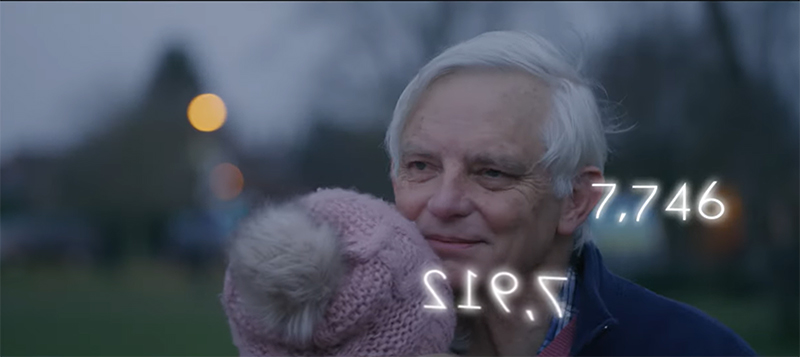Why Time Becomes Ever More Precious Towards the End of Our Days
4299 0
Time: The Resource That Connects Patients and Staff - by Professor Brian Dolan, OBE

(Image used with permission from Your Last 1000 Days video)
In health care, conversations about finance, workforce, and facilities often dominate the agenda. Yet, the most valuable and universal currency within our health systems is something less tangible but far more immediate: time.
Time is the thread that connects patients and staff, shaping experiences, outcomes, and well-being.
For patients, time is deeply personal. It is the time that comes dripping slow as hours are spent waiting in emergency departments, days of confinement to a hospital bed, and, ultimately, the quality of the life they return to when they are finally discharged.
For staff, time determines how effectively they can deliver care, make decisions, and balance the demands of an increasingly pressured system.
Honouring Time at the End of Life
We long for love. We wish we had more time. We fear death. Sometimes the greatest discomfort for us, as health professionals, is not in clinical decision-making but in having conversations about end-of-life care not least, perhaps, because it’s a nudging reminder of our own mortality. Yet here, more than anywhere else, the connecting currency of health care is the sacredness of time for patients; time left with family, community, and country.
When you ask health professionals ‘If you had 1,000 days left to live, how many would you choose to spend in hospital?’, the near universal response is ’Zero’. It’s pretty much same for everyone else you ask as well – and do please try this at home.
That noted, too often, so-called end-of-life conversations are held towards the end of a person’s life and given how many people die of complex, co-morbidity related conditions perhaps instead if we were to say much earlier, ‘What we know from others is that many people get about three years with this condition; some more, others less. So let’s plan together what we can do with that precious time'. This would enable people both time to process and time to plan.
Equally, a legitimate question to ask patients and their loved ones would be ‘What matters to you?’ knowing that the answer may evolve over time.
While our time is busy and important, our patients’ time is sacred and reframing our language can help us honour that. For instance, instead of talking about ‘length of stay,’ we can think of it as ‘length of time away from home’, that is from loved ones, and from the stories and communities that give people meaning.
By holding space for those stories with compassion, we recognise that health care is not only about adding years to life but about adding life and dignity to time.
Reframing the Conversation
If we reframed health care through the lens of time, we could improve end-of-life care.
Small shifts in language and perspective can spark big cultural change. Because, quite simply, there is no ward like home.
Learn more about how to discuss goals of care with your patient in the End-of-Life Essentials Goals of Care at the End of Llfe module.

Professor Brian Dolan, OBE, has a 40+ year career in various nursing, leadership, academic and consulting roles focusing on system redesign, culture change and patient flow. He is Director of Health Service 360 and has worked in Australia, New Zealand, the UK and Ireland. He is author of eight books on emergency nursing, education and leadership and in the 2019 Queen’s New Year’s Honours List was awarded an OBE ‘For services to nursing and emergency care’.